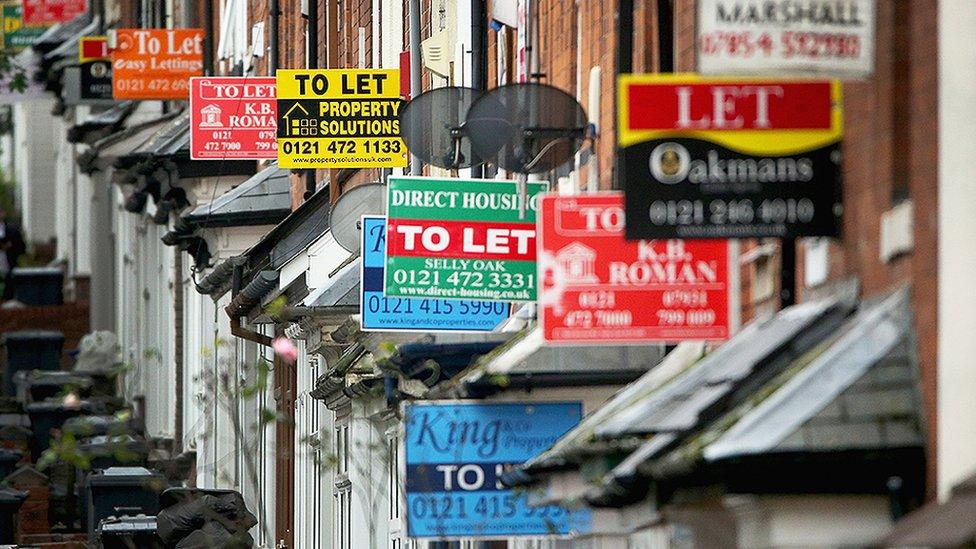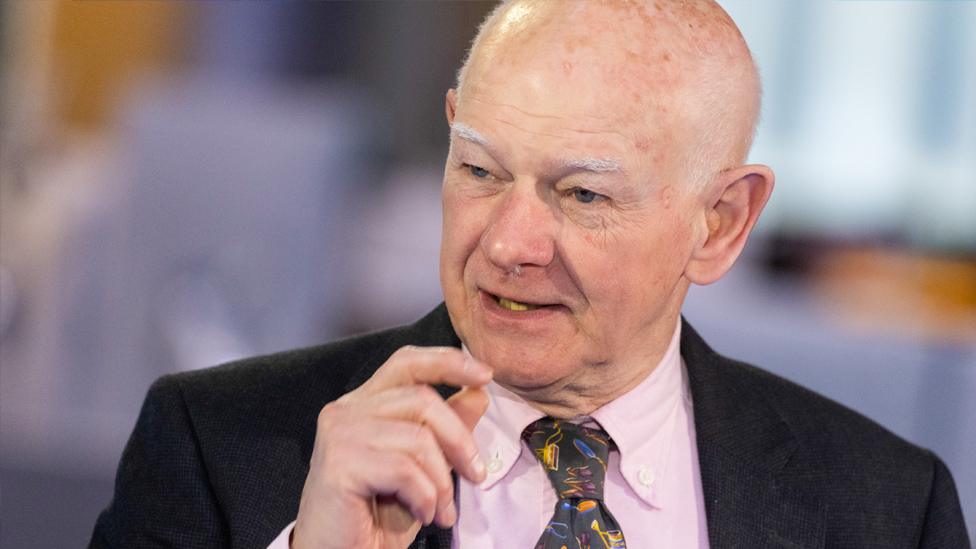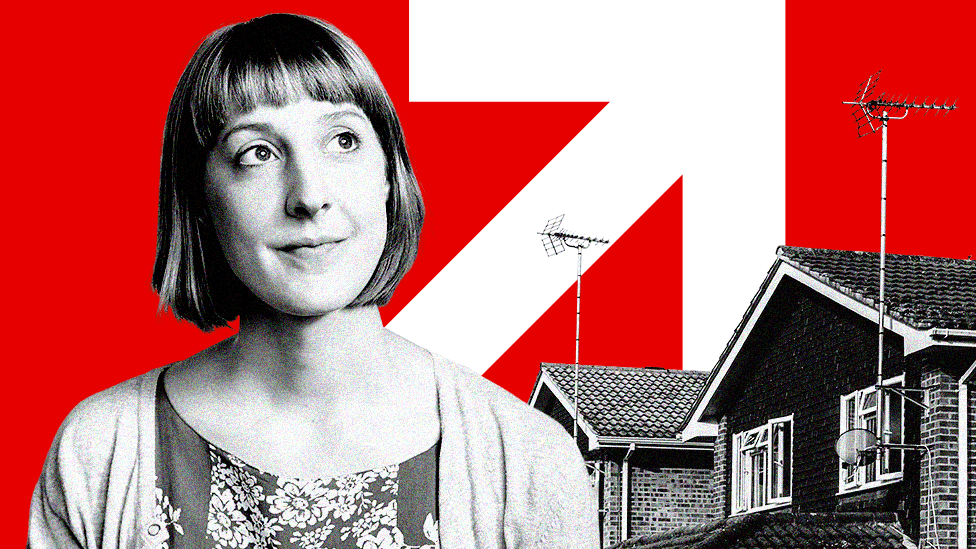Pressure on renters persists into new year
- Published
- comments

Financial pressure on renters has continued, official figures show, while analysts say there are tentative signs of activity in the property market.
Tenants paid 6.2% more in rent in January than they did a year earlier, the Office for National Statistics (ONS) said.
The annual rise was unchanged for the second consecutive month, as demand from tenants kept prices up.
There was a mixed picture in the property market across the UK.
Renter face competition
Annual rental rises are running at a high rate, and particularly so in London, where the annual increase was 6.9%, and in Scotland, where it was 6.8%.
Renters have faced stiff competition for properties, just at a time when supply from landlords has been shrinking.
The ONS figures record prices paid, but for those moving to a new tenancy, the increases are likely to be greater.
Many analysts suggest that the pace of increases will slow in the coming months as renters consider any further increases to be unaffordable.
Renters looking to buy a first property may be cheered to see house prices falling. However, mortgage rate reductions, which were moving at pace at the start of the year, have now stalled.
On average, UK house prices fell in the year to December, with the ONS recording a drop of 1.4% which equates to a fall of £4,000. Yet, the picture varies quite noticeably in different parts of the country.
In England, prices were down 2.1%, and they were 2.5% lower over the year in Wales. However, they were up 3.3% in Scotland over the same period.
Figures are collected slightly differently in Northern Ireland, but rose by 1.4% in the final quarter of the year.
Regionally, there were house price increases over the year in the North West of England and the West Midlands, but falls elsewhere in England. London's average house price remains the most expensive of any region in the UK.
Commentators said that wider inflation figures, also published on Wednesday, would mean the Bank of England would not rush to cut benchmark interest rates, so mortgage rates could even increase slightly.
"There are broader challenges on the horizon. We are on the brink of recession, redundancies are on the rise, and there is every chance that life gets tougher before it gets better," said Sarah Coles, personal finance analyst at investment platform Hargreaves Lansdown.
"It means buyers need to consider their finances in the round before taking the plunge. Beyond the money saved for your deposit, you need an emergency savings safety net to fall back on in tougher times."
Jonathan Hopper, chief executive of Garrington Property Finders, said there were "tentative signs" of more activity in the housing market among buyers, as price falls had meant some areas looked better value than previously.
While mortgage rates might stall, they were still lower than at the end of last year, he added, giving buyers a little more confidence.

What happens if I miss a mortgage payment?
If you miss two or more months' repayments you are officially in arrears
Your lender must then treat you fairly by considering any requests about changing how you pay, such as lower repayments for a short time
They might also allow you to extend the term of the mortgage or let you pay just the interest for a certain period
However, any arrangement will be reflected on your credit file, which could affect your ability to borrow money in the future

Related topics
- Published14 February 2024

- Published8 February 2024

- Published11 February 2024

- Published5 January 2024

- Published8 January 2024

